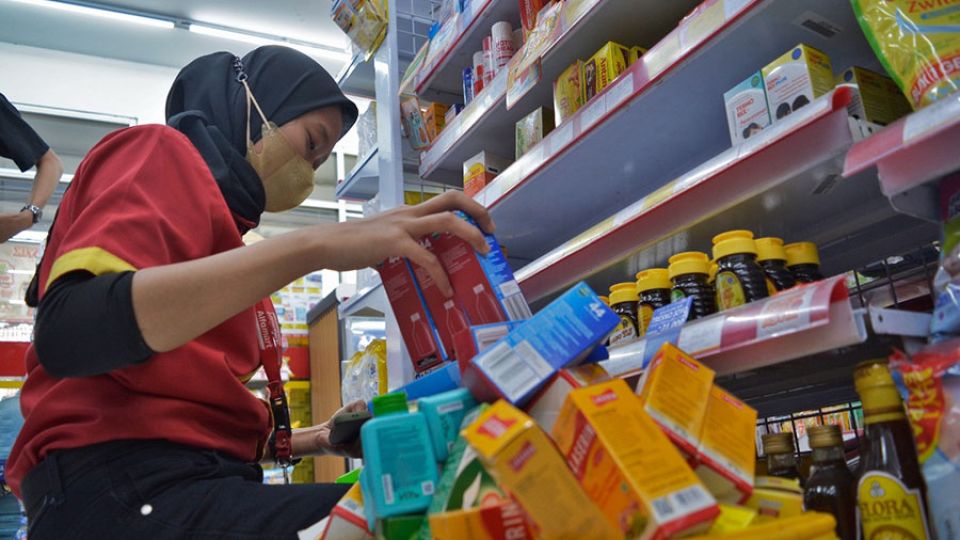October 20, 2022
JAKARTA – The Health Ministry has temporarily banned the prescription of all syrup-based medicines and their over-the-counter sales amid an ongoing probe into an unexplained rise in the number of acute kidney injury (AKI) cases that has left nearly 100 children dead so far this year.
As of Tuesday, the ministry had recorded at least 206 AKI cases – mostly in children under six years old – in 20 provinces with 99 fatalities since January, spokesman Mohammad Syahril told a press conference on Wednesday.
This puts the fatality rate at a staggering 48 percent. “
There have previously been [cases of] acute kidney injury, but at a much lower figure, only one or two [cases] each month,” Syahril said, adding that the spike in cases happened in late August.
He also noted that the state-run Cipto Mangunkusumo Hospital (RSCM) in Jakarta – the ministry’s national referral hospital – had reported a higher fatality rate of 65 percent.
While authorities have not identified the definitive cause of the disease, the ministry has taken the precaution of ordering health facilities and medical workers to temporarily stop prescribing syrup-based medicines and drug stores to temporarily halt the sale of such medicines until further notice.
“In line with the Health Ministry circular [issued on Tuesday], all kinds of syrup-based medicine are banned, not only paracetamol. [We suspect that], it’s not the contents of the medicine itself, but other components [of the medicine] that may be toxic,” Syahril said.
This came after an early investigation by an expert team formed by the ministry found traces of chemical compounds that might cause the unusual kidney injury, in medicines that had been consumed by the sick children before they displayed signs of the kidney injury.
The team’s investigation into the definitive cause of the illness continues, involving the Food and Drug Monitoring Agency (BPOM), doctors from the Indonesian Pediatrician Association (IDAI), as well as the World Health Organization’s (WHO) representatives in Indonesia.
“In the meantime, we also urge people not to give children [over-the-counter] medicinal syrups without first consulting with health workers or doctors,” Syaril said, adding that parents could give either oral medications in the form of pills and tablets, or suppositories.
The ministry also instructed hospitals treating children with AKI to collect all medicines that the families had given to those children, so toxicology tests could be conducted.
The rise in cases in Indonesia came after Gambia in West Africa reported that nearly 70 children had died from AKI after taking paracetamol syrups made by New Delhi-based Maiden Pharmaceuticals to treat fever. Investigators from the WHO later found “unacceptable” levels of diethylene glycol and ethylene glycol, which can be toxic, in four products made by the Indian company.
The BPOM said on Wednesday that none of the four syrups were registered in Indonesia, and has since banned the use of the two contaminants in any medicinal syrup products. But the agency also said that the two contaminants might be found in glycerin or propylene glycol, which are additional solvents in syrup-based medicines.
While results of the investigation and a possible cause of the AKI are expected to be announced by next week, the ministry has already ruled out COVID-19 vaccines or infections as a possible cause of the disease.
“These rumors have been widely reported and circulated on social media. But, upon investigation, [we found that] there are no links [between the AKI] and COVID-19 vaccines or infection, particularly since the disease is found in children younger than six, who cannot yet get vaccinated,” Syahril said.
The ministry is alerting parents to the emerging uncommon illness and encouraging them to see a doctor if their children display abnormally low urine output or failure to produce urine, with or without fever and other symptoms like diarrhea, vomiting and coughing. The ministry has also begun importing medicines to address the spike in cases.
In Medan, North Sumatra, six children aged from one to five years have died from the illness since July. They were treated at Adam Malik General Hospital in Medan. A two-year old patient survived the illness, according to hospital nephrologist Rosmayanti Syafriani Siregar.
North Sumatra Health Agency reported four other cases being treated in another hospital in Medan. The condition of these children remains unclear.
Agency head Ismail Lubis said his office was still investigating the cases.
– Apriadi Gunawan contributed to the story from Medan


